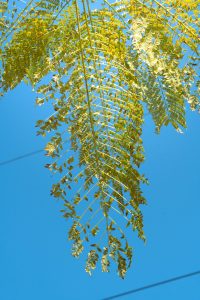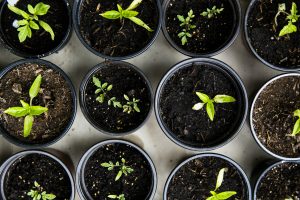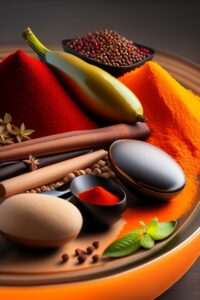Have we ever found ourselves wondering if the organic products we’re buying are truly all they claim to be? In a world where the demand for organic products is skyrocketing, it is increasingly essential for us to be vigilant consumers. This article will guide us through the steps to identify fake organic products and ensure that we’re getting what we pay for.
Why It’s Important to Identify Fake Organic Products
Not only is it frustrating to spend extra money on products that aren’t genuinely organic, but consuming fake organic items can also pose health risks and environmental consequences. Let’s explore why it’s crucial to discern genuine organic products from their counterfeit counterparts.
Health Benefits and Risks
Organic products are generally free from synthetic pesticides, genetically modified organisms (GMOs), and harmful chemicals. This ideally means fewer toxins in our bodies, promoting better health. However, consuming fake organic items means we could unknowingly introduce these harmful substances into our systems, negating the benefits we sought.
Environmental Concerns
Genuine organic farming practices use sustainable methods that protect soil health, water resources, and biodiversity. By supporting authentic organic products, we contribute to a healthier planet. On the other hand, fake organic products may come from practices that harm the environment, undermining our efforts to support sustainability.
Common Characteristics of Genuine Organic Products
Recognizing the characteristics of genuine organic products can help us make informed choices. Here are some features we should consider:
- Certified Labels: Genuine organic products are often certified by reputable organizations. Look for labels such as USDA Organic, EU Organic, or other local organic certifications.
- Ingredient Transparency: Authentic organic products typically have transparent ingredient lists, with recognizable and straightforward ingredients.
- Color and Texture: Organic products might have slight variations in color and texture since they aren’t treated with artificial enhancers.
- Price: Genuine organic products may be more expensive due to the cost of organic farming practices. Be wary of products priced significantly lower than the average organic product.

Understanding Organic Certifications
Organic certifications are one of the most reliable ways to ensure a product is genuinely organic. However, understanding the different labels and what they represent is crucial.
Common Certification Labels
| Certification Label | Region | Description |
|---|---|---|
| USDA Organic | United States | At least 95% organic ingredients. No GMOs. |
| EU Organic | European Union | At least 95% organic ingredients. Strict standards for synthetic pesticides. |
| JAS | Japan | Adheres to Japanese Agricultural Standards. |
| Certified Organic by ACO | Australia | At least 95% organic. No synthetic chemicals. Non-GMO. |
What These Labels Mean
USDA Organic
In the United States, the USDA Organic seal indicates that the product contains at least 95% organic ingredients and adheres to strict guidelines against GMOs, synthetic fertilizers, and pesticides.
EU Organic
Products with the EU Organic label also contain at least 95% organic ingredients. They must abide by stringent regulations regarding the use of synthetic pesticides and other non-organic substances.
JAS (Japanese Agricultural Standards)
For products in Japan, the JAS label ensures they meet specific organic farming requirements and are free from synthetic chemicals and additives.
ACO (Australian Certified Organic)
In Australia, the ACO label guarantees that products contain at least 95% organic ingredients and are produced without synthetic chemicals or GMOs.
Tips to Identify Fake Organic Products
Being able to spot fake organic products requires a combination of careful examination and informed decision-making. Here are some tips to help us become savvy consumers:
Check the Certification
Always look for certification labels from recognized organic certifying bodies. Be skeptical of vague claims like “natural” or “eco-friendly” that lack an official certification.
Read the Ingredients
Organic products should list ingredients that are recognizable and simple. A long list of unpronounceable chemicals might be a red flag. Compare ingredients to ensure they match what one would expect in an organic product.
Pay Attention to Price
While we all love a good bargain, extremely low prices on supposed organic products can be a sign of counterfeit goods. Organic farming is costlier, which usually reflects in the higher price of genuine organic items.
Research the Brand
Research the brand’s reputation and reviews. Genuine organic brands often have a track record of transparency and customer trust. Look for information on their sourcing and manufacturing processes.
Use Your Senses
Inspect the product’s appearance; organic items may have some natural variations. Also, consider the smell; strong artificial scents can indicate the use of synthetic additives.

Commonly Faked Organic Products
Certain products are more susceptible to being falsely labeled as organic due to their market demand and perceived health benefits. Let’s take a closer look at some of these items:
Fruits and Vegetables
Fresh produce like fruits and vegetables are often misrepresented as organic. They require careful scrutiny, especially in markets and grocery stores.
Dairy and Meat Products
Dairy and meat products with organic claims should be especially verified since factors like feed quality and animal welfare are critical in genuine organic farming.
Health Supplements
The booming health supplement industry is another area rife with fake organic claims. Supplements should be meticulously researched for credible certifications and ingredient lists.
Skincare and Beauty Products
With rising consumer interest in natural beauty, skincare products are often labeled as organic without genuine certification. Always verify labels and ingredients here.
Steps to Take When We Suspect a Fake Organic Product
Even with the best practices, we might still come across dubious products. Here’s what we can do if we suspect an item is falsely labeled as organic:
Report to Regulatory Authorities
Report the product to relevant regulatory bodies like the USDA, EU organic certification authorities, or national consumer protection agencies. They can investigate the issue further.
Inform the Retailer
Notify the store or retailer where the product was purchased. Reputable sellers will usually want to take action and ensure they are not stocking fake organic products.
Share Information
Use social media or consumer review platforms to share our experiences. This can help raise awareness and prevent others from falling victim to counterfeit products.
Building a Trustworthy Organic Product Database
Having a go-to list of trustworthy organic brands can save us time and effort in the long run. We can build our own database by:
Researching and Listing Brands
Compile information from reliable sources about brands that consistently produce certified organic products. Make a list and keep it updated.
Reading Reviews
Regularly check customer reviews and organic product forums. Community feedback is invaluable for staying informed about any changes or issues with trusted brands.
Verifying Certifications
Ensure that the brands on our list maintain their certifications and adhere to organic standards continuously. Certifications may change, and it’s crucial to keep our database current.
How Manufacturers Can Help Curb Fake Organic Products
Manufacturers have a crucial role in ensuring that organic products remain genuine and trustworthy. Here are some steps they can take:
Transparent Sourcing
Manufacturers should be transparent about their ingredient sourcing and farming practices. This builds consumer trust and ensures adherence to organic standards.
Regular Audits
Conducting regular third-party audits can help maintain the integrity of organic claims. Audits should cover the entire supply chain, from farm to shelf.
Clear Labeling
Labels should be clear, accurate, and include certification information from reputable bodies. Avoiding vague terms and providing detailed ingredient lists helps consumers make informed choices.
The Role of Retailers in Promoting Genuine Organic Products
Retailers also play an essential role in curbing the spread of fake organic products. They can take proactive measures to ensure their shelves are stocked with genuine items.
Vetting Suppliers
Retailers should thoroughly vet their suppliers and only source products from reputable brands known for their certified organic goods.
Regular Checks
Conducting regular checks and audits of stocked products can help catch any mislabeled items. This involves staying updated on the latest certifications and industry standards.
Educating Customers
Retailers can provide educational resources to customers, helping them understand what to look for in authentic organic products. This not only builds customer trust but also empowers consumers to make better choices.
The Future of Organic Products and Consumer Trust
As the demand for organic products continues to grow, so will the challenges related to authenticity. Staying informed and vigilant is our best defense against counterfeit goods.
Technological Advancements
Emerging technologies like blockchain can offer enhanced traceability in the supply chain, making it easier to verify the authenticity of organic products. Other advancements in food safety testing and certification processes will further reinforce consumer trust.
Community Efforts
Building a community of informed consumers who share information and support each other is vital. Together, we can advocate for stricter regulations and better industry practices.
Our Responsibility as Informed Consumers
We are the first line of defense when it comes to identifying fake organic products. By staying informed, asking questions, and making conscientious choices, we can ensure that our investments in organic products are truly beneficial.
Continuous Learning
The landscape of organic products is always evolving. Staying updated through reliable sources, attending workshops, and participating in community discussions helps us keep our knowledge current.
Advocating for Stricter Regulations
As consumers, we can advocate for stricter regulations and more rigorous enforcement of organic standards. This collective demand encourages policymakers and industry leaders to take action.
Supporting Genuine Brands
By consistently supporting trustworthy, certified organic brands, we create a market demand that incentivizes genuine organic farming practices. This not only benefits our health but also promotes environmental sustainability.
Conclusion
Knowing how to identify fake organic products is essential in a market where the demand for organic goods is higher than ever. By understanding certifications, being vigilant about labels, and supporting genuine brands, we can ensure that we get the true benefits of organic products. Let’s continue to educate ourselves and others, fostering a community of informed consumers who prioritize authenticity and sustainability.



